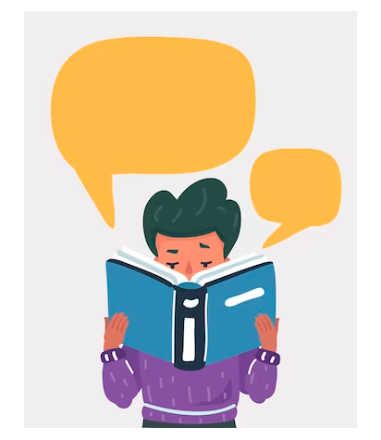Embarking on the transformative journey from the nascent flicker of an idea to the realization of a polished literary masterpiece is an odyssey replete with challenges, solitary reflections, and moments of unparalleled creativity. This intricate process is punctuated by a critical yet frequently underappreciated phase where the manuscript, akin to a nascent butterfly poised to unfurl its wings, is tenderly revealed to a select cadre of discerning readers prior to its grand unveiling to the literary world.
These early evaluators, affectionately known as beta readers, stand as the unsung sentinels in the lifecycle of a manuscript. Their keen insights and thoughtful critiques play a pivotal role in shaping the manuscript’s growth, enhancing and refining its essence in profound and enduring ways. This exploration aims to illuminate beta readers’ significant impact on the writing process, spotlighting their indispensable role in nurturing and bringing a manuscript to its fullest potential. In the realm of writing, where the act of creation is often a solitary pursuit, the transition to sharing one’s work can be a moment of vulnerability and anticipation.
Recognising the value of this phase, Book Writing HQ offers ghostwriter services that help authors articulate their visions and prepare their works for the critical eyes of beta readers. This synergy between ghostwriting expertise and beta reader insights forms a robust foundation for refining a manuscript.
Delving Deeper into the Realm of Beta Readers
Beta readers occupy a unique and critical niche at the intersection of the solitary act of writing and the communal experience of reading. They don the mantle of the insightful critic, immersing themselves in the manuscript’s essence with a discerning eye. Their engagement goes beyond mere reading; they delve into the narrative’s flow, explore the complexities of character development, and savour the thematic nuances.
This profound immersion allows them to offer feedback that can pivot the narrative’s direction, enriching and refining the manuscript in ways that might elude the author’s initial vision. Beta readers are more than just readers; they are a crucial conduit between an author’s creative vision and the audience’s expectations.
By evaluating the manuscript through an unbiased lens, beta readers provide insights free from the emotional biases that friends or family might offer.
They represent a microcosm of the intended audience, making their feedback invaluable for any writer aiming to resonate with and captivate a broader readership. In this light, Book Writing HQ’s ghostwriter services can be instrumental in crafting initial drafts that are receptive to the transformative feedback of beta readers, ensuring the narrative is robust and engaging from the outset.
The Multidimensional Advantages of Beta Reader Engagement
- Gleaning Audience Insights: As the manuscript’s first real audience, beta readers offer invaluable insights into how the general public might receive the story. Their feedback highlights the elements of the story that resonate and those that may falter, ensuring the narrative reaches its intended audience and deeply engages them.
- Unveiling Narrative Blind Spots: Authors might overlook subtle narrative discrepancies or character inconsistencies in the whirlwind of creativity. With their fresh perspectives, Beta readers can identify these hidden flaws, providing the author with a precious opportunity to rectify them before the manuscript’s completion.
- Refining Linguistic Clarity: A manuscript’s success is closely tied to its readability. Beta readers play a crucial role in identifying areas where the prose may become entangled, technical jargon obscures meaning, or stylistic inconsistencies disrupt the narrative flow.
- Assessing Market Resonance: Beyond structural and thematic considerations, beta readers can offer insights into the manuscript’s potential appeal within the market. Their engagement and reactions serve as early indicators of the manuscript’s ability to captivate its intended demographic.
Maximising the Efficacy of Beta Reader Collaborations
Cultivating the Ideal Beta Reader Cohort
Selecting the right beta readers is akin to casting for a play; they must resonate with the target audience’s traits and have an affinity for the manuscript’s genre. This alignment ensures that the feedback is relevant and constructive. Writing circles, literary forums, and vibrant digital communities dedicated to the literary arts serve as fertile ground for finding these critical allies.
Establishing Transparent Communication
Clear and transparent communication is paramount in the collaborative dance with beta readers. Authors must articulate the specific type of critique sought, whether it concerns narrative cohesion, character depth, or the story’s emotional undercurrents. This clarity allows beta readers to focus their feedback, making it more actionable and meaningful.
Navigating Feedback with an Open Mind
The landscape of feedback is inherently subjective, adorned with a diverse array of opinions and viewpoints. It’s crucial to approach this feedback with an open mind, identifying recurring themes or critiques that deserve attention. This discerning process enables the separation of constructive criticism from personal preference, ensuring that revisions align with the author’s vision.
Expressing Gratitude
Beta readers generously invest their time and intellect without the expectation of monetary compensation. Expressing sincere gratitude for their contributions fosters a sense of community and cements lasting relationships within the literary ecosystem.
In Retrospect
The role of beta readers in the development of a manuscript is invaluable. They offer an external perspective that can significantly alter the narrative’s course, infusing the manuscript with depth and richness that might otherwise remain untapped. Their critiques, when coupled with the foundational work of ghostwriter services like those offered by Book Writing HQ, are not mere suggestions but powerful tools that can elevate a manuscript from mediocrity to excellence.
As authors navigate the complex maze of revisions and rewrites, it’s vital to remember that beta readers are more than evaluators; they are the catalysts capable of propelling a narrative to resonate deeply with its intended audience, ensuring that the literary creation not only speaks but truly sings to the hearts and minds of readers.

 Last Updated: January 26, 2024
Last Updated: January 26, 2024

 Last Updated: January 26, 2024
Last Updated: January 26, 2024

 Last Updated: January 24, 2024
Last Updated: January 24, 2024

 Last Updated: January 23, 2024
Last Updated: January 23, 2024

 Last Updated: January 22, 2024
Last Updated: January 22, 2024


 Last Updated: January 22, 2024
Last Updated: January 22, 2024

 Last Updated: January 20, 2024
Last Updated: January 20, 2024

 Last Updated: January 20, 2024
Last Updated: January 20, 2024


 Last Updated: January 18, 2024
Last Updated: January 18, 2024

 Last Updated: January 18, 2024
Last Updated: January 18, 2024

4,482
Share
The Essential Role of Beta Readers in Shaping Your Manuscript
Embarking on the transformative journey from the nascent flicker of an idea to the realization of a polished literary masterpiece is an odyssey replete with challenges, solitary reflections, and moments of unparalleled creativity. This intricate process is punctuated by a critical yet frequently underappreciated phase where the manuscript, akin to a nascent butterfly poised to unfurl its wings, is tenderly revealed to a select cadre of discerning readers prior to its grand unveiling to the literary world.
These early evaluators, affectionately known as beta readers, stand as the unsung sentinels in the lifecycle of a manuscript. Their keen insights and thoughtful critiques play a pivotal role in shaping the manuscript’s growth, enhancing and refining its essence in profound and enduring ways. This exploration aims to illuminate beta readers’ significant impact on the writing process, spotlighting their indispensable role in nurturing and bringing a manuscript to its fullest potential. In the realm of writing, where the act of creation is often a solitary pursuit, the transition to sharing one’s work can be a moment of vulnerability and anticipation.
Recognising the value of this phase, Book Writing HQ offers ghostwriter services that help authors articulate their visions and prepare their works for the critical eyes of beta readers. This synergy between ghostwriting expertise and beta reader insights forms a robust foundation for refining a manuscript.
Delving Deeper into the Realm of Beta Readers
Beta readers occupy a unique and critical niche at the intersection of the solitary act of writing and the communal experience of reading. They don the mantle of the insightful critic, immersing themselves in the manuscript’s essence with a discerning eye. Their engagement goes beyond mere reading; they delve into the narrative’s flow, explore the complexities of character development, and savour the thematic nuances.
This profound immersion allows them to offer feedback that can pivot the narrative’s direction, enriching and refining the manuscript in ways that might elude the author’s initial vision. Beta readers are more than just readers; they are a crucial conduit between an author’s creative vision and the audience’s expectations.
By evaluating the manuscript through an unbiased lens, beta readers provide insights free from the emotional biases that friends or family might offer.
They represent a microcosm of the intended audience, making their feedback invaluable for any writer aiming to resonate with and captivate a broader readership. In this light, Book Writing HQ’s ghostwriter services can be instrumental in crafting initial drafts that are receptive to the transformative feedback of beta readers, ensuring the narrative is robust and engaging from the outset.
The Multidimensional Advantages of Beta Reader Engagement
Maximising the Efficacy of Beta Reader Collaborations
Table of Content
Cultivating the Ideal Beta Reader Cohort
Selecting the right beta readers is akin to casting for a play; they must resonate with the target audience’s traits and have an affinity for the manuscript’s genre. This alignment ensures that the feedback is relevant and constructive. Writing circles, literary forums, and vibrant digital communities dedicated to the literary arts serve as fertile ground for finding these critical allies.
Establishing Transparent Communication
Clear and transparent communication is paramount in the collaborative dance with beta readers. Authors must articulate the specific type of critique sought, whether it concerns narrative cohesion, character depth, or the story’s emotional undercurrents. This clarity allows beta readers to focus their feedback, making it more actionable and meaningful.
Navigating Feedback with an Open Mind
The landscape of feedback is inherently subjective, adorned with a diverse array of opinions and viewpoints. It’s crucial to approach this feedback with an open mind, identifying recurring themes or critiques that deserve attention. This discerning process enables the separation of constructive criticism from personal preference, ensuring that revisions align with the author’s vision.
Expressing Gratitude
Beta readers generously invest their time and intellect without the expectation of monetary compensation. Expressing sincere gratitude for their contributions fosters a sense of community and cements lasting relationships within the literary ecosystem.
In Retrospect
The role of beta readers in the development of a manuscript is invaluable. They offer an external perspective that can significantly alter the narrative’s course, infusing the manuscript with depth and richness that might otherwise remain untapped. Their critiques, when coupled with the foundational work of ghostwriter services like those offered by Book Writing HQ, are not mere suggestions but powerful tools that can elevate a manuscript from mediocrity to excellence.
As authors navigate the complex maze of revisions and rewrites, it’s vital to remember that beta readers are more than evaluators; they are the catalysts capable of propelling a narrative to resonate deeply with its intended audience, ensuring that the literary creation not only speaks but truly sings to the hearts and minds of readers.
Table of Content